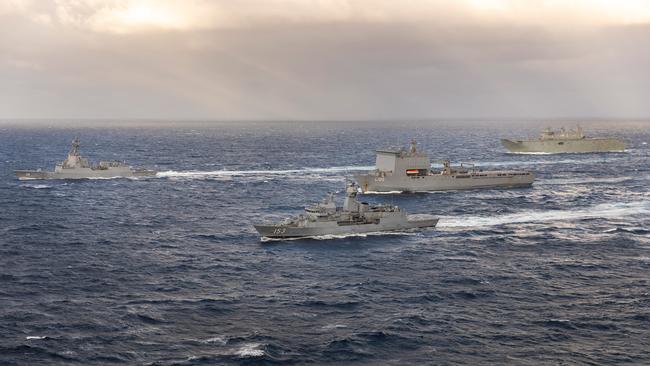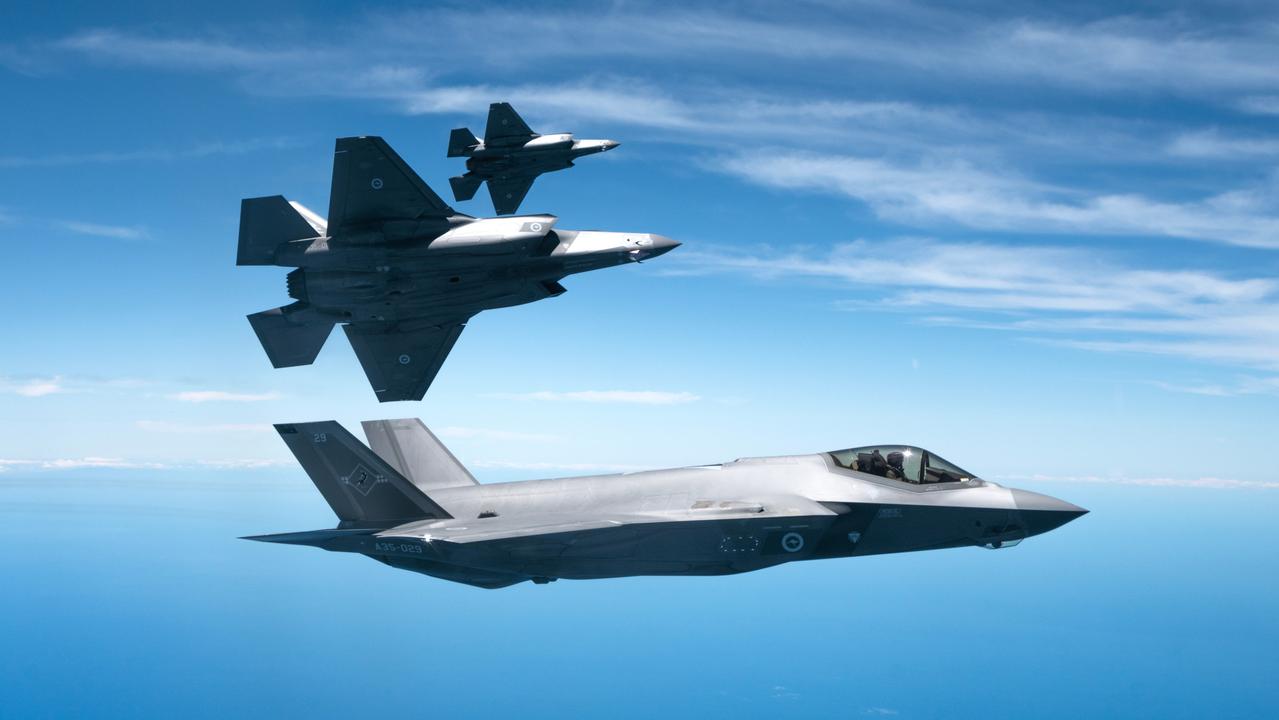Nuanced support for Pacific is crucial
Australia is enhancing regional maritime security for Pacific Island nations through the Pacific Maritime Security Program (PMSP): a package of capability-building, infrastructure development, sustainment, training, and co-ordination activities.

The Pacific is a transit route for drugs, particularly cocaine and methamphetamine, from Asia, the US and Latin America to Australia and New Zealand. Illicit drug trafficking is a growing transnational maritime crime threat to the region. But it’s just one of a set of maritime security challenges facing our Pacific family.
These include illegal, unreported and unregulated fishing (the region has the world’s largest tuna fishery), illegal people movement by fishing vessels, and sea-level rise (it’s likely that China will offer to assist the islands with dredging through its “magic island-making” boats operating in the South China Sea). Climate change can contribute to the occurrence of maritime crimes. Incidents of sea robbery have occurred in the Solomon Islands and Papua New Guinea.
Once Pacific seabed mining begins (there’s a diversity of positions across the region), the marine minerals sector will face a number of threats from environmental activist groups.
The region is vulnerable to maritime natural hazards, especially tsunamis and cyclones. Marine safety is a major concern in the Pacific. Submarine cable networks in the region are vulnerable, and any breakage or damage can have serious consequences.
The main way that we’re assisting the Pacific to respond to these maritime security threats and risks is the Pacific Maritime Security Program (PMSP): a package of capability-building, infrastructure development, sustainment, training, and co-ordination activities designed to enhance regional maritime security for Pacific Island nations.
The Guardian-class patrol boats (GPB) we’re donating to the region are 39.5-m, steel-hull patrol boats built by Austal at Henderson, Western Australia. Thirteen nations are receiving the patrol boats as sovereign assets with a shared support system built on partnership. Thus far, 20 vessels have been handed over to Pacific island countries.
The PMSP isn’t a simple transfer-and-forget project. Thirty-three Australian maritime security and technical advisers, (senior sailors with marine engineering or electrical specialisations), have deployed to recipient countries. No other countries have such a wide network of maritime advisers in the region.
Our advisers are critical in building capacity and capability of the island nations. They play an important role in the development of maritime surveillance policies in the recipient countries. They assist our understanding of the maritime security threats in the region.
Australia provides fuel for multilateral GPB surveillance operations, including for four annual Forum Fisheries Agency operations. GPB crews receive opportunities for comprehensive training in Australia and Pacific Island countries to operate, manage and maintain their vessels.
The “cradle to the grave” nature of the PMSP is unusual: it incorporates maritime operations, training, enhanced aerial surveillance, and regional co-ordination. The islands prioritise how the vessels are used, not Australia. The PMSP is a 30-year program valued at $5.9bn.
The PMSP program isn’t driven by strategic competition. Apart from a hydrographic vessel that China gave Fiji a few years ago, Beijing hasn’t offered to assist the islands with its maritime domain awareness capabilities, such as ocean observation and meteorological satellites. China’s large Coast Guard fleet is more focused on the Taiwan Strait and East and South China Seas, not Pacific deployments.
Australia makes key contributions to regional aerial surveillance operations. It sends personnel to the Forum Fisheries Agency in Honiara to support regional surveillance co-ordination. We support 1440 hours of annual air surveillance to be flown day and night through a contracted program operationally managed by FFA. Last December, we gifted two PAC-750XL aircraft to the PNG Defence Force for transport, to aid search and rescue operations, and surveillance.
Australia funds the Pacific Fusion Centre in Vanuatu, which facilitates research and information-sharing between Pacific Island countries to address security challenges, particularly those related to maritime security. Australia has extended maritime surveillance co-operation support to the region through the Pacific Quad (Australia, France, New Zealand and the US), as well as through the France, Australia, New Zealand Arrangement (FRANZ) that co-ordinates regional disaster response.
We’re now in the process of offering PMSP partners vertical takeoff, commercial off-the-shelf drones for each GPB, as well as training associated with operating them.
The small drones are intended to operate from the GPBs. They will provide the vessels’ crews with better situational awareness, and increase their efficacy during surveillance, boarding, and search and rescue operations. The drones are expected to be rolled out early next year.
In August, we committed $400m over five years for a Pacific Policing Initiative (four training centres, a police group to deploy in response to island country requirements and a co-ordination hub in Brisbane), that would cover responding to maritime transnational crime and maritime disasters.
When it comes to maritime security capacity building, the absorptive capacity of the Pacific is a key challenge. Australia needs to be responsive to the region’s demand signals at a pace the region can absorb. The challenge is listening to the island countries. It can be hard, for example, to make quick changes to the Australian supported maritime training schedule of about 20 courses.
Deconflicting maritime capacity building is an issue. The four formal Pacific Quad meetings held each year help. But there’s now more external players. It’s important for our support not to overlap. Japan, for example, has provided boats to Palau and the Federated States of Micronesia (FSM), and plans to provide Fiji with small boats for surveillance operations. Japan has committed to providing a fisheries research vessel to the Marshall Islands, FSM, PNG and Vanuatu, and a patrol boat to Nauru. Taiwan has provided small boats to Tuvalu, Palau and Nauru.
The US Coast Guard has ship rider agreements with many island countries. A USCG cutter vessel, based at Joint Base Pearl Harbor-Hickam in Hawaii, is focused on engaging with the island countries.
Australia and the US at the Australia-US Ministerial Consultations (AUSMIN) meeting in August committed to increasing Pacific maritime security co-ordination between Australia, France, New Zealand, and the US.
Not all Pacific Island states need the same things: trying to scale up or down in our maritime security capacity support isn’t always simple. The increasing number of external ship visits, for example, is challenging for Pacific Island countries to handle. Island governments don’t want to offend a partner country maritime visitor by saying “don’t come”.
-
Dr Anthony Bergin is a senior fellow at Strategic Analysis Australia and an expert associate at the National Security College.


